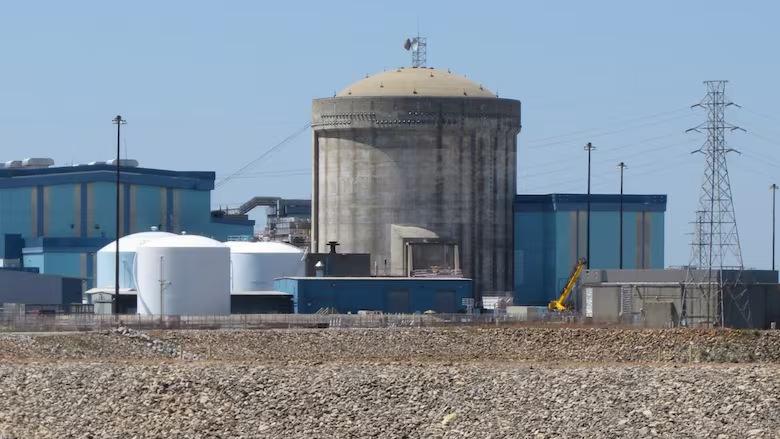Utilities pull plug on reactors that promised U.S. nuclear renaissance
Cost overruns, Westinghouse bankruptcy blamed for scrapping of South Carolina reactors

South Carolina utilities are abandoning two unfinished reactors that were once hailed as the start of a U.S. nuclear power renaissance — before they were dogged by billions of dollars in cost overruns.
The reactors were proposed a decade ago, when U.S. policy-makers expected more than a dozen new nuclear power plants to provide carbon-free electricity. In the years since, however, a shale revolution unleashed a glut of cheaper natural gas, the Fukushima accident in Japan raised fresh safety concerns and the Trump administration is now unwinding steps aimed at countering climate change.
A unit of SCANA Corporation and state-owned Santee Cooper said Monday they would abandon the twin-reactor project known as V.C. Summer. It is less than 40 per cent complete, and more than $9 billion US had been spent on construction.
"We arrived at this very difficult but necessary decision following months of evaluating the project from all perspectives to determine the most prudent path forward," said SCANA CEO Kevin Marsh in a statement.
The project was originally expected to begin producing power last year but has been plagued by construction problems, disputes with regulators and poor quality work.
Westinghouse bankruptcy the catalyst
The utilities blamed the bankruptcy of the project's contractor, Toshiba Corp's Westinghouse Electric Co., which said in March that it could not afford to finish the fixed-price contract for V.C. Summer or a similar project in Georgia known as Vogtle.
A presentation to the Santee Cooper board showed that in the wake of Westinghouse's bankruptcy, the project would likely not be completed before 2023 and would go 75 per cent over the initial budget, to as much as $24 billion US.
The Georgia project, led by a unit of Southern Co., is now the only new U.S. reactor under construction, since the Three Mile Island accident in 1979. Westinghouse landed the contracts by touting its AP1000 design as safer, as well as cheaper and quicker to construct.
Halting V.C. Summer increases the likelihood Southern Co. will abandon the Vogtle project, adding to a long list of nuclear power plants cancelled after construction began.

Power companies started construction of all 99 reactors now in service in the United States before the Three Mile Island accident in Pennsylvania in 1979.
It would also be a blow to Westinghouse as it is trying to find a buyer to rescue the company from its financial crisis.
'A cautionary tale'
"The collapse of the Summer project should be a cautionary tale," said Edwin Lyman, a senior scientist with the Global Security Program at the Union of Concerned Scientists in Washington.
He said new designs will still require billions of dollars to ensure they meet strict safety standards. "Unless the nuclear industry acknowledges that there are no shortcuts to development of new nuclear power technology, it will be doomed to repeat this failure," he said.
Nuclear power plants around the country are struggling to compete with power from cheap natural gas. Santee Cooper's CEO Lonnie Carter urged the U.S. government to invest in energy and noted that the country could be caught off guard if sluggish electricity demand began to rise again.
"What if everybody starts plugging in electric vehicles?" he asked, as Tesla Inc. began roll-out of its much-anticipated Model 3 electric vehicle.
Shares of SCANA were up five per cent on Monday. The stock is down about 14 per cent this year.
Shares of Southern Co. were up one per cent.
Utilities in South Carolina and Georgia can bill ratepayers for part of the cost of building new power plants before they go into service. SCANA and Santee Cooper may have to defend against attempts to claw back some of the rate increases used to finance the now-abandoned reactors.